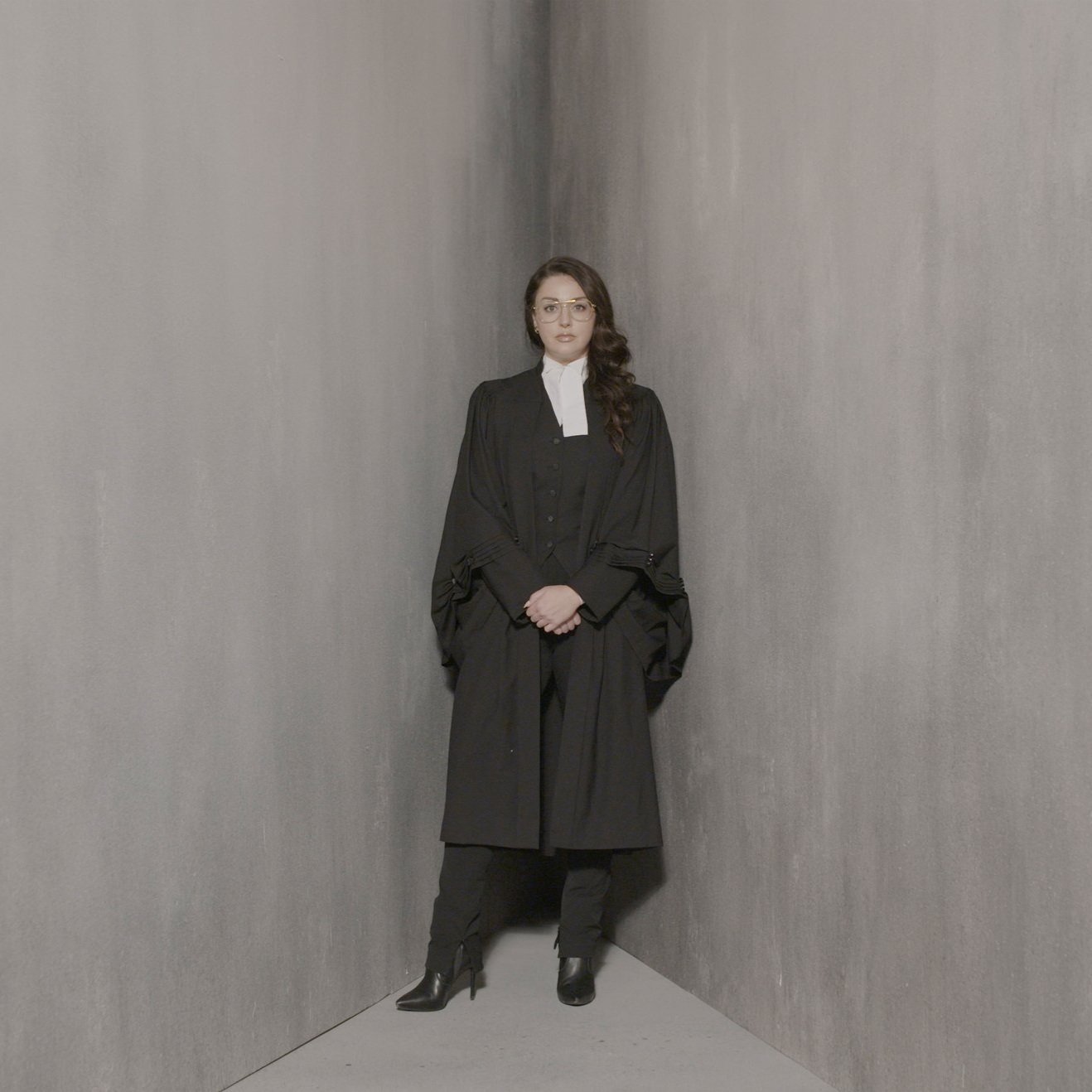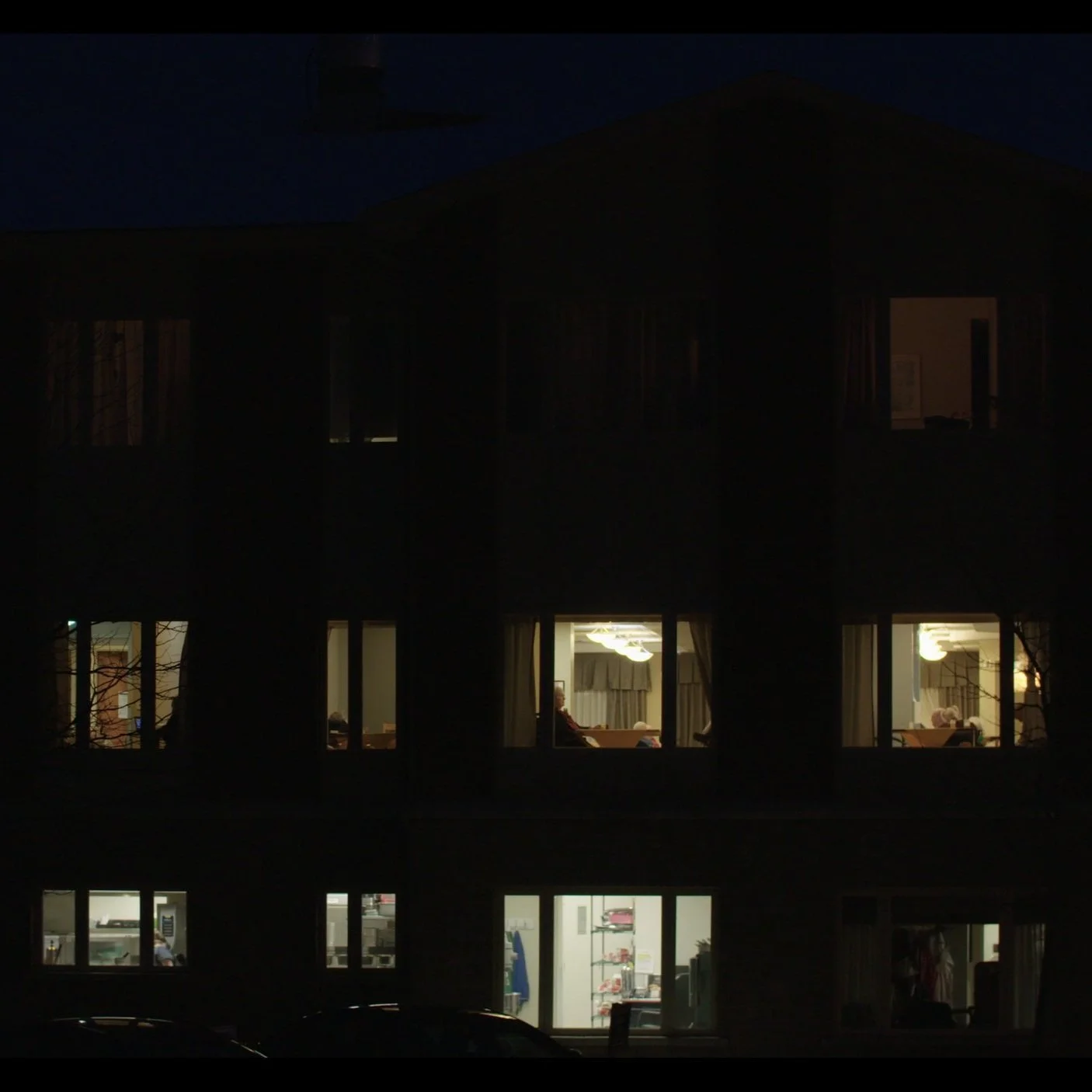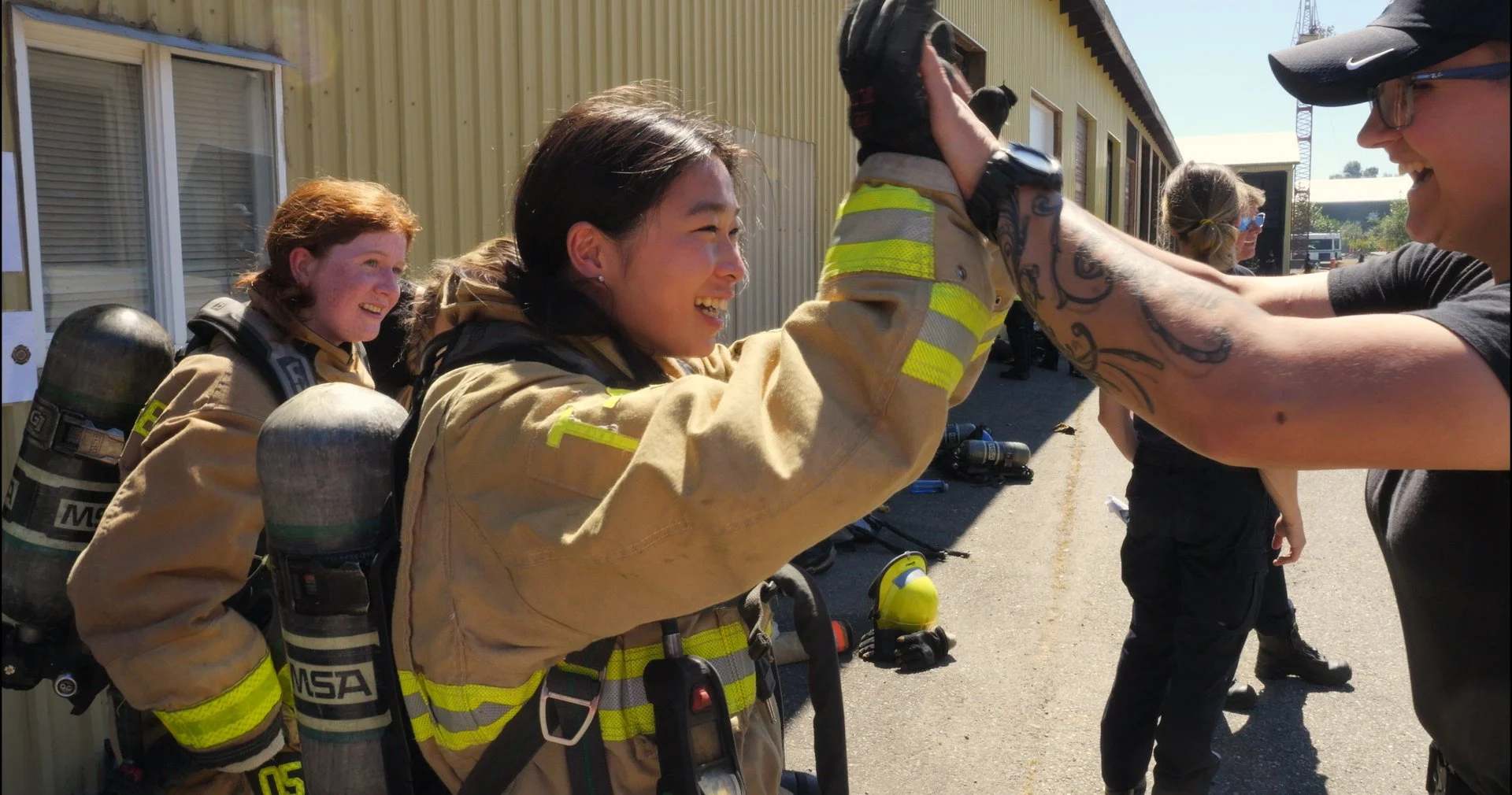Film review: Stolen Time exposes brutal corporate crime in the long-term care industry
The NFB’s chilling documentary reminds us that a society is measured by the compassion it extends to its most vulnerable
Melissa Miller, lawyer specializing in elder law, in Stolen Time.
Nighttime exterior of a long-term care facility in Stolen Time.
Stolen Time screens at VIFF Centre March 21 to March 28, with a panel discussion after the screening on March 21 at 6 pm with industry experts Julia Henderson, Bruce Devereux, and Sara Pon
FROM THE NFB and filmmaker Helene Klodawsky, this indictment of the for-profit long-term care industry is essential. That’s assuming we have the stomach to look and the eyes to see. There are images here of wounds and injuries that beggar belief and candid snatches of video revealing elder abuse, used sparingly, all things considered, but there are even greater horrors in Stolen Time concerning the vicious reality of corporate-government partnership and the capture of our legal protections.
Melissa Miller is a Toronto-based lawyer on a crusade against companies like Extendicare, whose staggering financials are exposed in the film by a private investigator. While record profits accumulate, understaffed facilities withhold incontinence pads. The stories of neglect are already far too familiar to Canadians. Dehydration, malnutrition, and misdiagnoses are rampant. Ditto Alzheimer’s, strokes, sepsis, and broken bones. Inconvenient clients are disposed of by chemical straightjacket or shoo’d right out of the facility. In one of Miller’s private cases, a pressure wound goes untreated for so long that a woman dies with a fist-sized hole exposing her tailbone.
In one of the film’s grimmest sequences, we see the nauseating images captured in secret by a dental hygienist who declares that she can measure the extent of oral neglect in a care home “by smell”. She’s given anonymity by the filmmakers because Canada does nothing to safeguard corporate whistleblowers. And this ties into the deeper issue revealed by Stolen Time, which is produced by the NFB’s Ariel Nasr with Ina Fichman of Intuitive Pictures Inc. The ostensible subject of the movie, Miller is a passionate and tough advocate from a working-class background, but her greatest foe is a political class that trashes all the rules. In pursuing mass tort litigation against a number of companies including Extendicare and Sierra Senior Living—the better, she says, to argue systemic over individual crimes—Miller is assailed by legal teams with unlimited time, funds, and decades of practice committing moral injury to families who trusted that their loved-ones were safe.
Even more shocking is a revelation that comes roughly halfway through the film, illuminating the full measure of the revolving-door system between government and the corporate world. Miller learns that one of the companies she’s suing was purchased by the Public Sector Pension Investment Board, a Crown corporation that uses private care facilities as a pure investment asset, thereby, in the words of researcher Jackie Brown, “growing the retirement savings of civil servants by extracting from care provided to seniors.” This is nothing less than a racket protected by the Feds.
There is a great deal more to Stolen Time, the beating heart of which resides with Miller and the team assembled by Klodawsky to tell its story, including a former care-worker who processes her experiences though art and a union rep speaking out against the near-total subversion of our institutions. In reality, their kind of decency exists everywhere among common Canadians and Stolen Time is speaking very bluntly to those people. The specific message: in “Canada the Good”, the corporate sector is shielded from justice while raking in billions, but “old people don’t matter and their lives mean nothing.” The wider message: it’s not just old people. ![]()














